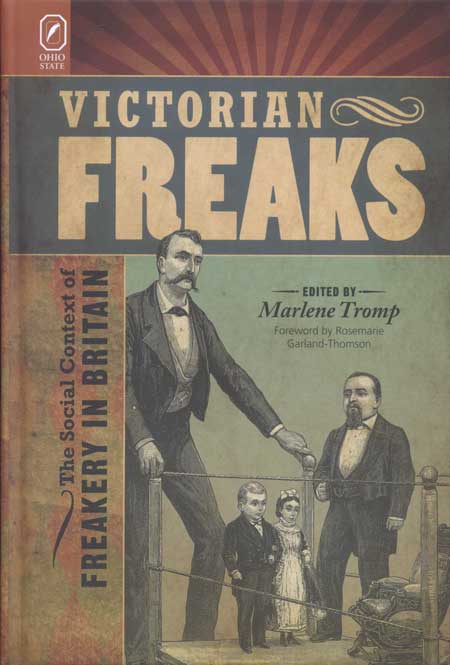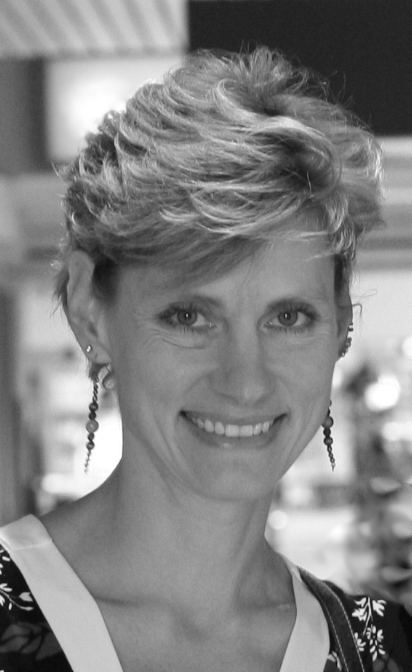Victorian FreaksThe Social Context of Freakery in BritainEdited by Marlene Tromp |
 Mar 2008 Victorian Studies; Literary Criticism/European/English 328 pp. 6x9  $64.95 cloth 978-0-8142-1086-4 Add cloth to shopping cart $14.95 CD 978-0-8142-9166-5 Add CD to shopping cart $29.95 paper 978-0-8142-5246-8 Add paper to shopping cart Shopping Cart Instructions Review/Change Shopping Cart & Check-out | |||
|
“Read together, these essays not only meet their goal of providing a nuanced look into the social construction of the freak figure in British culture, but highlight how freakery importantly contributed to the politics of mainstream culture as well. . . . [T]he authors refuse to fall into the now increasingly interrogated practice of interpreting disability as a metaphor in the literary texts they explore, instead insisting upon placing materiality and humanity at the forefront of each analysis. In doing so, they provide an important model of new ways of reading and talking about representations of disability in literary scholarship—a model that will surely come in handy for any future scholar willing to rise to the challenge of responding to and expanding upon all the critical questions Victorian Freaks asks its readers to consider.” —Disability Studies Quarterly “Many of the essays in Victorian Freaks either explore outfight or at least rely upon notions of the animal/human divide and, in doing so, make a real, lasting contribution to scholarship, taking the field in a new, exciting direction.” —Nineteenth-Century Gender Studies “While there has been extensive work on American freak shows, less had been done on the significance of the freak in England. Scholars and students gain much insight from the essayists’ invocations of disability studies as a model for thinking about freakishness and freakishness as a model for contemplating disability. Victorian Freaks will therefore be a welcome addition to the growing body of works on freaks and disability studies from a literary perspective.” —Elsie Michie, associate professor of English, Louisiana State University “Victorian Freaks is particularly noteworthy for its often-nuanced analysis of freakery. The figure of the freak is represented not simply as a victim of cultural prejudices, but as an agent who actively negotiates a version of subjectivity through the performance and manipulation of cultural codes regarding deviance and normalcy.” —Tamar Heller, author of Dead Secrets: Wilkie Collins and the Female Gothic While “freaks” have captivated our imagination since well before the nineteenth century, the Victorians flocked to shows featuring dancing dwarves, bearded ladies, “missing links,” and six-legged sheep. Indeed, this period has been described by Rosemarie Garland-Thomson as the epoch of “consolidation” for freakery: an era of social change, enormously popular freak shows, and taxonomic frenzy. Victorian Freaks: The Social Context of Freakery in Britain, edited by Marlene Tromp, turns to that rich nexus, examining the struggle over definitions of “freakery” and the unstable and sometimes conflicting ways in which freakery was understood and deployed. As the first study centralizing British culture, this collection discusses figures as varied as Joseph Merrick, “The Elephant Man”; Daniel Lambert, “King of the Fat Men”; Julia Pastrana, “The Bear Woman”; and Laloo “The Marvellous Indian Boy” and his embedded, parasitic twin. The Victorian Freaks contributors examine Victorian culture through the lens of freakery, reading the production of the freak against the landscape of capitalist consumption, the medical community, and the politics of empire, sexuality, and art. Collectively, these essays ask how freakery engaged with notions of normalcy and with its Victorian cultural context.
| ||||


 Marlene Tromp
Marlene Tromp